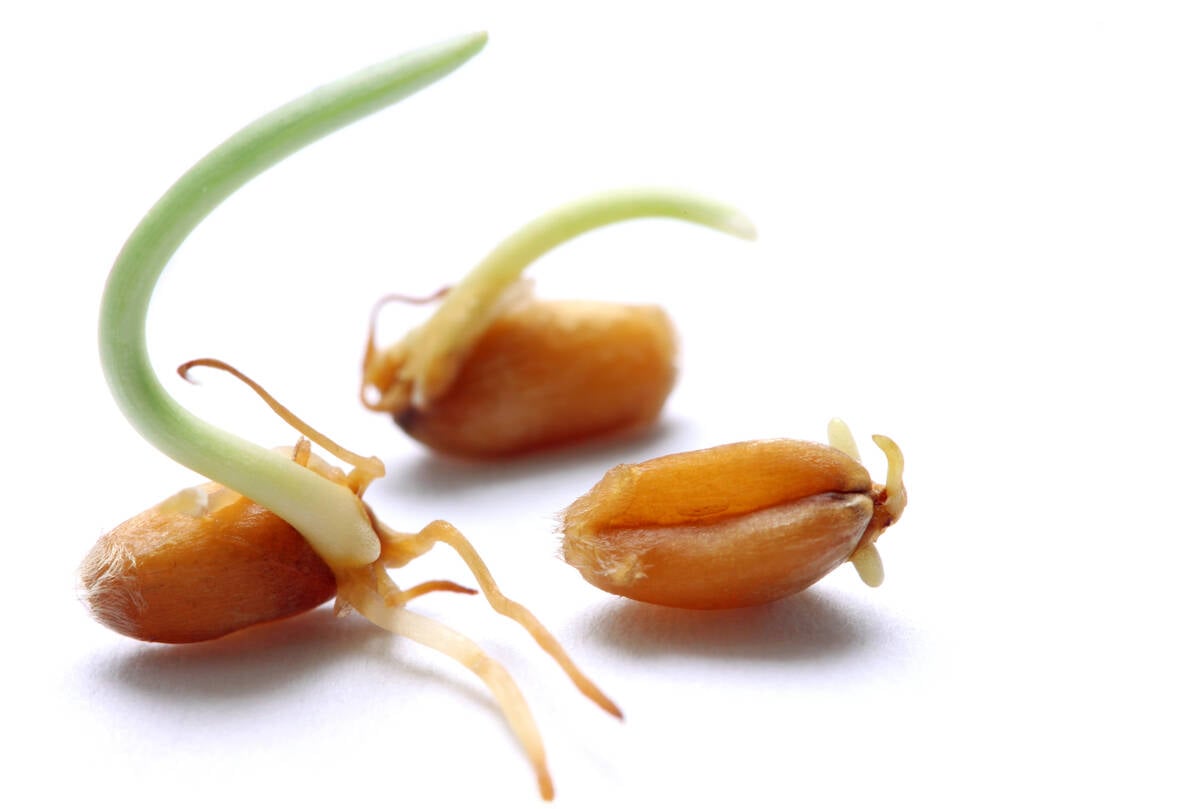The door has been left open a crack for those who don’t like the Estey report’s most contentious recommendations.
But they’ll have to convince everyone around the table that the recommendations they don’t like are impractical and unworkable.
Arthur Kroeger, the man heading up the consultations for a new grain transportation policy, said participants are free to argue that specific proposals in the report will create insurmountable problems.
“The Canadian Wheat Board is not going to be prevented from explaining the difficulties of being simply a buyer at port,” he said in an interview last week following the inaugural meeting of the group’s steering committee.
Read Also

Manitoba farmers fight sprouted wheat after rain
Rain in mid-September has led to wheat sprouting problems in some Manitoba farm fields.
Similarly, the railways could try to make the case that joint running rights would be so disruptive to their operations as to be unworkable.
But Kroeger emphasized that any alternative will have to fit in with the general thrust of Estey’s report.
“It’s not a question of going back to an administered system, which is what the wheat board is running at present,” he said. “It would be finding alternatives to Estey but still with the objective of being more commercial and more market-driven.”
The board’s future role is being studied by one of three working groups that began work May 31.
CWB supporters were somewhat encouraged by the group’s terms of reference, which say any new commercial arrangements would have to ensure that the board is “effectively able to fulfill its mandate to market wheat and barley on behalf of western producers.”
The board says it can provide evidence that being involved in transportation is crucial to fulfilling that mandate.
“We don’t want to be in transportation just to be in transportation,” said CWB spokesperson Deanna Allen. “There are solid numbers to back why we should be, to make the most for farmers and to keep the system as efficient as possible.”
Kroeger said he was encouraged by the tone of the initial steering committee meeting, which brought political enemies like the National Farmers Union and the two national railways to the same table.
“These are difficult subjects and people have got different views,” he said. “That being said, they all approached the meeting in a very professional way. They were all serious and they all accepted the ground rules.”
Farm organization officials had a variety of reactions.
“There are some of us who think we’re working on getting the best of a bad deal,” said Don Dewar, president of Keystone Agricultural Producers.
National Farmers Union vice-president Fred Tait said the initial meeting didn’t give him any confidence that farmers will come out of the process any better off. He said the union is participating reluctantly and may withdraw if it seems the process is designed simply to implement Estey, which it opposes.
Paul Orsak, of the Prairie Farm Commodity Coalition, said he was “cautiously optimistic” that progress is being made toward implementing the more commercial system envisioned by Estey and favored by the coalition.
He hopes everyone will take a “constructive” approach, adding that any group that has major disagreement with the thrust of Estey shouldn’t participate.
The 14-member steering committee chaired by Kroeger held its first meeting May 26, while the three working groups began this week. All the committees have 50 percent representation from farm groups.














